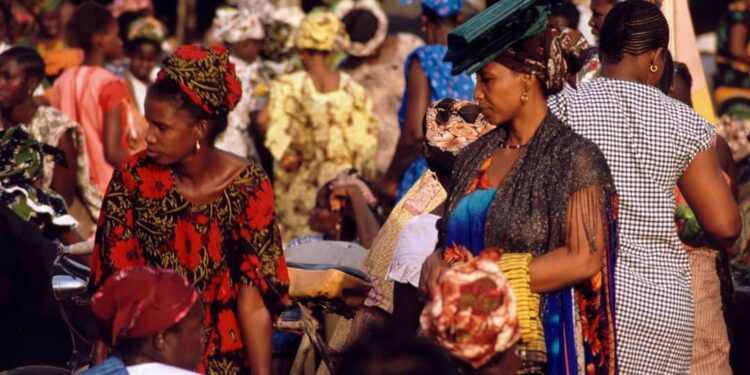In a coup-plagued and politically unrest-prone region, Senegal was the exception for a long time. However, early this year, under unclear circumstances, that reputation was tarnished when the reigning president attempted to push the general elections back by four months. President Macky Sall who has been in power for the past 12 years sought to move the elections that were originally officially set for February 25th to June 2nd, 2024. This attempt, however, failed after Senegal’s top court, the Constitutional Council, ruled that the move was unconstitutional. The people of Senegal went to the polls on March 24th, 2024 with opposition leader Faye emerging as the winner with 54% of the votes.
Here’s everything you need to know about Senegal’s general elections.
What caused the election delay
President Macky Sall had been seen as a steady leader in governing Senegal for the past two terms. However, three weeks before the 2024 general elections were scheduled, the president went on state television and announced the postponement of the elections. He alleged that the approval of the running candidates was marred with corruption. To date, President Sall remains adamant that the decision was not fueled by ulterior motives to cling on to power for longer but in response to concerns raised by parliamentarians.
What ensued after this announcement was violent protests across the country. The uproar prompted an emergency meeting by the ECOWAS – Economic Community of West African States – to create an environment for dialogue and prevent further destabilization in the country. During his tenure, President Sall promoted economic growth in the country by boosting investments in transport and urban infrastructure. He secured funding for the country’s inaugural oil development project, which is now 95% complete and expected to start production between May and July 2024, as well as spearheaded collaboration for the first gas production project that is 92% complete and anticipated to produce 2.3 million tons of gas per year. Additionally, President Sall’s government focused on connecting remote villages to power and improving their access to healthcare.
However, despite the progress made by President Sall’s administration, approximately 36% of the country’s population still lives in poverty. The economic growth is not enough to support the youth who are hardest hit, with about a third struggling to find work and earn a livable wage. Most young Senegalese have turned to trying to earn from online jobs, betting platforms, and online casinos or attempt to illegally migrate to Europe or America for better job prospects.
Who were the running candidates
There were a total of 19 candidates vying to be Senegal’s next president. The prominent six were:
- Amadou Ba – The current governing party’s candidate. He is the country’s former prime minister, having been released from his duties on 6th March to focus on his campaign.
- Bassirou Diomaye Faye – He was considered the main challenger from the opposition. He was just released from jail on 14th March following the passing of the amnesty law. Mr. Faye, a former tax inspector, was backed by popular government opposer and critic Mr. Ousmane Sonko.
- Anta Babacar Ngom – She was the only woman presidential candidate in Senegal’s 2024 elections and the first in over a decade. Anta is a successful entrepreneur and the former executive of Sedima, a leading poultry production group in the West and Central Africa region that also operates Senegal’s Kentucky Fried Chicken franchises.
- Khalifa Ababacar Sall – He served as the Mayor of Dakar, Senega’s capital city from 2009 to 2018. He was, however, removed from office unceremoniously for allegations of embezzling public funds amounting to almost $3 million, sentenced to five years in prison but pardoned by President Sall almost a year after his sentencing.
- Ahammed Boun Abdallah Dionne – He served as prime minister from 2014 to 2019 under President Sall’s regime. He was seen as one of the most likely to be supported by the ruling party to take over after President Sall, but when that did not occur, he formed his coalition and announced his candidacy.
- Idrissa Seck – He served as prime minister from 2002 to 2004 under former President Abdoulaye Wade’s administration but was sacked due to embezzlement allegations. He vied for the presidency and lost in 2007 and 2012.
What were the election outcome predictions
As expected after the Senegalese went to the polls on Sunday, March 24th, 2024, the results of the first round of elections have been released in a week with Mr. Faye becoming the new president. This comes as a surprise as analysts had predicted a runoff of the elections. Had this prediction materialized, elections would have been held afresh in a month.
Well, that has not been the case with Mr. Faye claiming victory with 54% of the votes — he becomes the youngest president in Senegal’s history. Mr. Ba who was tipped to give President Faye a run for his money came a distant 2nd — only claiming 36% of the votes.
Since independence, Senegal has had three peaceful handovers of power. It remains the only country in mainland West Africa that has yet to experience a coup, and the hope is that this will remain so with President Sall handing over power to his main opposition leader Bassirou Diomaye Faye.



